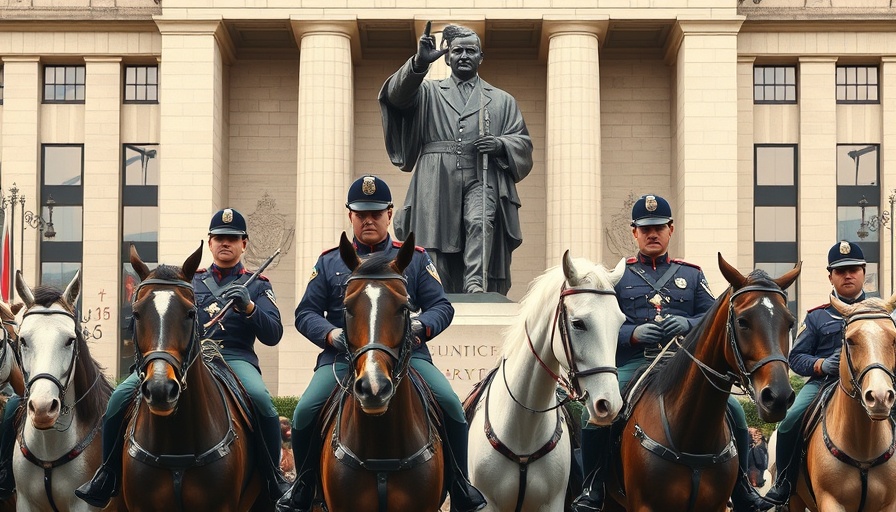
A Monumental Decision Awaits: The Frank Rizzo Statue
As Philadelphia prepares for a crucial vote that could reshape the narrative around one of its most controversial figures, the question of what to do with the Frank Rizzo statue sits at the forefront. This 9-foot bronze sculpture of the former mayor has been in storage since its removal during the protests following George Floyd's death in 2020, a time marked by significant civil unrest and calls for social justice.
The Legacy of a Polarizing Figure
Frank Rizzo served as both the city’s police commissioner and mayor from 1972 to 1980. His administration was marked by allegations of police brutality and discrimination against marginalized communities, particularly impacting Black and LGBTQ residents. As protests about systemic racism and police violence surged in 2020, the Rizzo statue became a symbol of division, prompting then-Mayor Jim Kenney to conclude it represented "bigotry, hatred, and oppression" for many.
A Community Divided
While the statue was originally commissioned in 1998 by a group that includes Rizzo's son, these supporters emphasize its artistic merit and historical significance. The Frank L. Rizzo Monument Committee has fought to reclaim the statue, filing a lawsuit against the city for its removal. They argue that the statue, created by Zenos Frudakis, possesses symbolic importance to Philadelphia's history and carries "immense sentimental value," aspects often overshadowed by its contentious legacy.
Preparing for the Vote
The Philadelphia Art Commission's upcoming vote is pivotal. If they agree to return the statue, it would mark a notable shift in how the city grapples with its history. The meeting could potentially set a precedent for how other statues and monuments representing controversial figures are handled, especially as discussions about racial justice continue to unfold across the nation.
In a city rich with history and diverse perspectives, the fate of the Rizzo statue encapsulates not only a local debate but also contributes to a larger, ongoing conversation about who we choose to honor and how that shapes our collective memory. The outcome will resonate deeply within the community and beyond, inspiring further dialogue on the definitions of legacy and remembrance.
 Add Row
Add Row  Add
Add 




Write A Comment